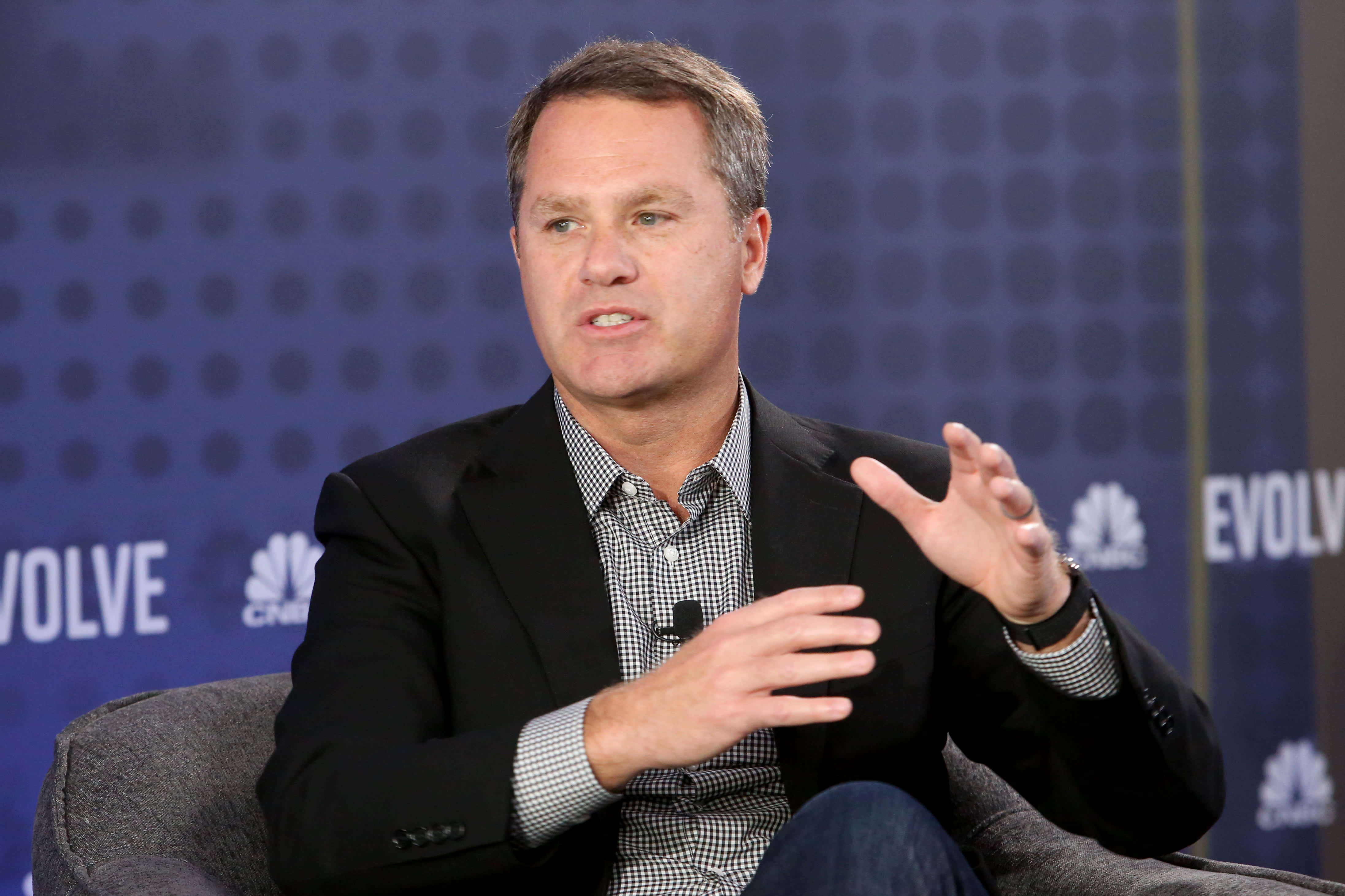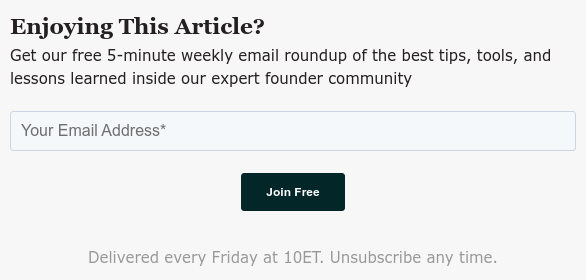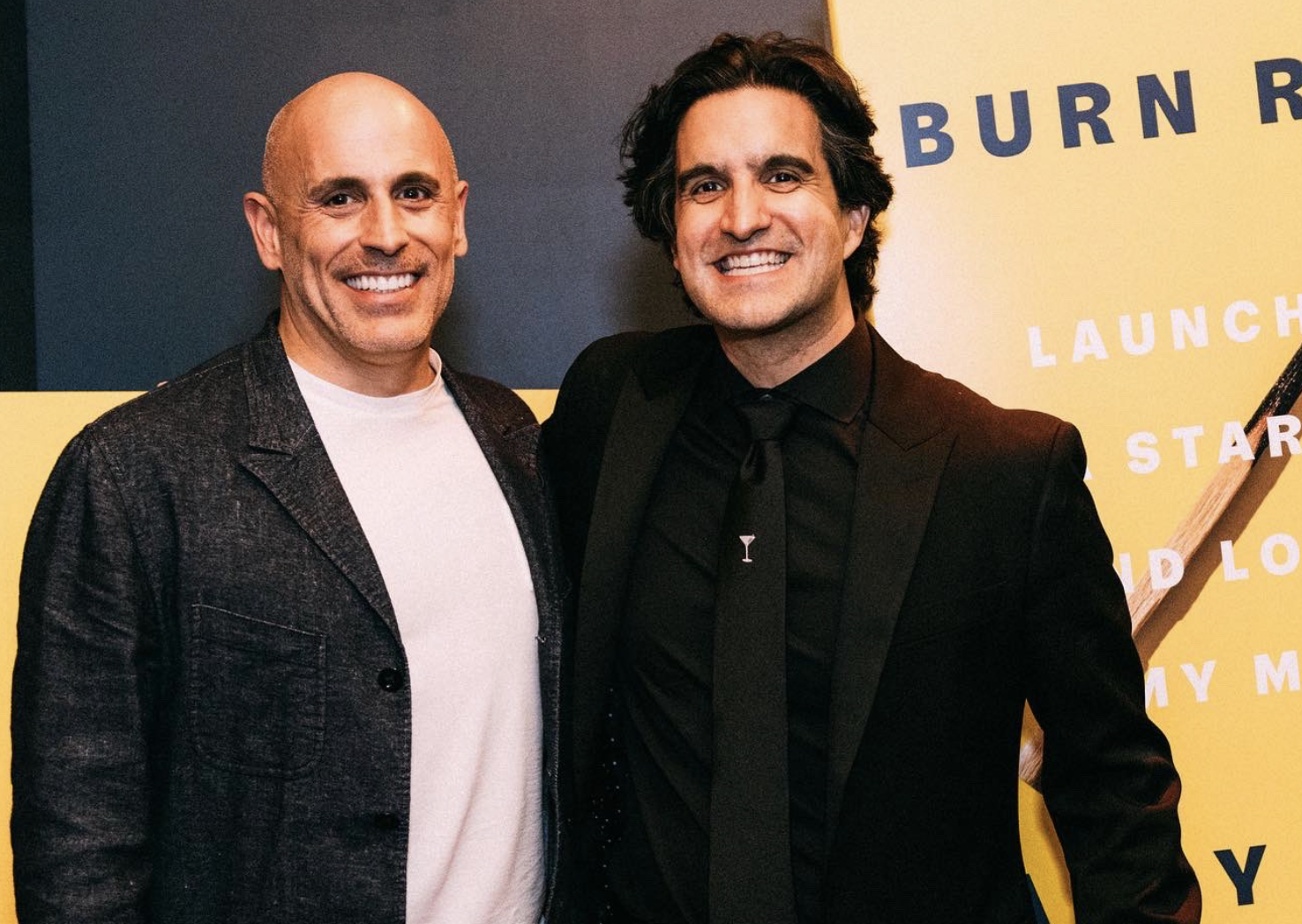What I Learned Working for the CEO of $400 Billion Company
After selling Bonobos to Walmart for over $300 million, we asked Andy Dunn what he learned working for the CEO of Walmart. His answer was surprising.
-1.png)
I'm writing this 15 minutes after we finished a conversation led by Andy Dunn and a few dozen Hampton members.
For those of you who don't know who Dunn is, here's a brief background:
- Founded Bonobos in 2007. Bonobos was the first d2c companies in the startup world. The company grew to $115m in revenue before selling for over $300 million to Walmart in 2016.
- In his early 20's Dunn was diagnosed with bipolar. He ignored and hid the diagnoses for years.
- Then, in 2016, near the time of the sale, he had a bipolar episode which lead to a few days in a psych ward and being arrested for assault.
- Dunn recently wrote a book titled Burn Rate: Launching a Startup and Losing My Mind. The book focuses on balancing mental health while running a startup.
The majority of Dunn's conversation was about his story and how to balance mental health while running a startup. It was incredibly helpful. I'll write about it soon.
But, there was one thing that Dunn spoke about that I wanted to quickly get on paper: his experience working with Doug McMillon, CEO of Walmart.
Dunn talked about what made McMillon special and he narrowed it down to two things: his ability to listen during meetings.
"Doug is a magician," Dunn said, "his communication skills are outrageous."
Dunn went on to say that when you were talking to McMillon, he made you feel you were the only one in the room. Strong eye contact with zero distractions. "He zoned in when someone was talking," Dunn said.

Often during the first part of a meeting, McMillon wouldn't speak. And when he did it was to just ask a question. "Why do you think this is true" or "what makes you feel that way?" McMillon used the Socratic method, according to Dunn.
Sometimes Dunn thought McMillion already had an opinion on what decision he was going to make with a problem. Still, he'd ask questions. This brings us to the second thing he did well: creating alignment.
After asking questions McMillion made sure everyone was aligned with the final decision, whether he convinced them his decision was the right one or if it was a disagree and commit situation.
"It was like nothing I had ever seen," Dunn said. "He made people feel heard. I had never seen anything like that."

Another point: McMillion sent detail notes on his employee's decks or presentations. McMillion asked meeting presenters to submit their slides in advance so he could read them. After the meeting, McMillion gave the presenter thoughtful notes on each slide, showing them he understood their perspective and cared.
"Whereas when I ran Bonobos," Dunn said, "I wouldn’t even look at the deck until the meeting. And I never gave notes."
As founders and business owners, we’re so busy and don’t have time. But McMillion taught Dunn to recognize that when your employees spend weeks on a project, showing respect by reviewing their work before a meeting means a more productive conversation and loyalty.
And finally, Dunn mentioned Marc Lore, founder of Jet.com. Dunn said Lore is one of the best founders he had ever worked with. When I asked why, Dunn said the following:
“He’s insane! His ideas have no ceiling. He explains his amazing ideas and they're crazy. But he does such a good job at making you believe he can do it! He has a three-store restaurant chain and thinks it’ll be a $100 billion dollar company. And when he explains it, you believe it! and he's kind when he does it."

So, there you have it. Some of my takeaways from talking with Andy Dunn, founder of Bonobos.
We do talks like this weekly at Hampton. If you're interested in seeing recaps on some of the talks, along with other stories where we breakdown the businesses of our members, enter your email at the top of the page.
And if you want to participate in these talks...apply to join Hampton :).
Personally, I find being the CEO of a startup to be downright exhilarating. But, as I'm sure you well know, it can also be a bit lonely and stressful at times, too.
Because, let's be honest, if you're the kind of person with the guts to actually launch and run a startup, then you can bet everyone will always be asking you a thousand questions, expecting you to have all the right answers -- all the time.
And that's okay! Navigating this kind of pressure is the job.
But what about all the difficult questions that you have as you reach each new level of growth and success? For tax questions, you have an accountant. For legal, your attorney. And for tech. your dev team.
This is where Hampton comes in.
Hampton's a private and highly vetted network for high-growth founders and CEOs.


.png?width=352&name=Blog%20Featured%20Image%20(40).png)
.png?width=352&name=Blog%20Featured%20Image%20(1).png)

